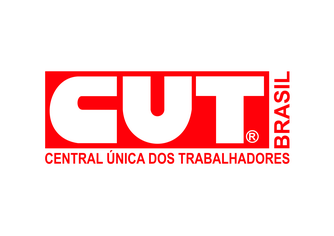Central Única dos Trabalhadores (Unified Workers' Central)

From 1964 to 1985 Brazil was under a military dictatorship characterized by lack of democracy, suppression of constitutional rights, political persecution, repression, censorship and torture. A broad process to restructure society began at the end of the 70s and continued in the mid-80s. Against this repressive government, Brazilian civil society began to organize actions fighting for a process of re-democratization of the country.
In this scene of deep political, economic and cultural changes, the so-called “new unionism” appeared with the revival of the mobilization process of the working class. These struggles led by trade union leaders in opposition to the official corporate unionism structure resulted in the creation of the Central Única dos Trabalhadores – CUT Brazil, which is the result of decades of struggles of the Brazilian working class.
CUT Brazil was founded on August 28th, 1983 in the city of São Bernardo do Campo, São Paulo, during the 1st National Congress of the Working Class (CONCLAT). At that time, more than five thousand men and women, from all regions of the country, filled the extinct movie company Vera Cruz and created an important chapter in the Brazilian history.
CUT Brazil is a mass national trade union organization, autonomous and democratic, whose commitment is to protect the historical and immediate interests of the working class. Based on principles of equality and solidarity, its goals are to organize, represent and lead the struggle of workers from urban and rural areas, public and private sectors, active and inactive, for better living and working conditions and for a fair and a democratic society.
Present in all economic sectors of the country, CUT Brazil is the biggest national confederation in Brazil with 3.960 affiliated trade unions, 7.933.029 associated workers and represents 25.831.443 workers.
CUT Brazil defends freedom of association and autonomy with the commitment and the understanding that workers have the right to decide freely on their forms of organization, membership and financial support, with complete independence of the State, governments, employers, political parties and faith or religious groups and/or institutions.
Strengthening democracy, development with income distribution and giving value to work are strategic issues for CUT Brazil. The fight for universal rights, a historical flag, is reaffirmed daily by the active participation of the National Confederation in the construction of public and affirmative policies in several sectors and segments of society, as women, youth, workers with disabilities, LGBT and the struggle against racial discrimination.
Since 2016 Brazil is facing a new type of coup. Michel Temer slipped into office in August 2016 after backing the impeachment process — widely condemned as a parliamentary coup — that ousted former President Dilma Rousseff, who was democratically re-elected in 2014. Temer’s cabinet had neither women nor black ministers and its government, himself and his office, has been involved in many corruption scandals. Beyond this, the illegitimate government has been implementing policies against principles of human rights, in favor of austerity measures and concentration of wealth. In December 2016 it approved a bill that freezes public spending in the country for the next two decades, which means that it will effectively limit what all future governments can spend on health, education and social welfare in a country where social inequalities are high and public services precarious.
Not only this, Temer’s government is also proposing a pension reform that will allow workers to retire with full benefit only if they contribute 49 years to the social security system and only when they reach 65 years old, which means that many workers will die before they retire, as in many states in Brazil, the life expectation is low. This proposal will also affect negatively women, as in Brazil women work usually 7 hours per week more than men, due to their double burden (domestic and paid work). Important also to mention that the Brazilian labour market has high turnover rates, which makes it difficult for a worker to have a stable labour relation.
This is not all, the un-elected government has also approved an outsourcing bill in March 2017, that allows companies to outsource any job and it also increased the temporary time for a job, from 3 to 9 months. This will definitely contribute to more precarious jobs, increasing of inequalities and unemployment in a country that has currently more than 12 million unemployed workers. Another proposal to be approved is a labour reform, which will weaken the current labour laws in favor of the interests of the employers.
In this scenario, CUT Brazil together with progressive social movements and other national confederations are opposing to these unfair measures that are imposing to a country a culture where human rights are not priority. The priority for them is to benefit elite groups that supported Temer and his allies in the impeachment process. These elite groups are not only from the Parliament, but also from the Judiciary system, from the main media groups and of course, from the employers groups.